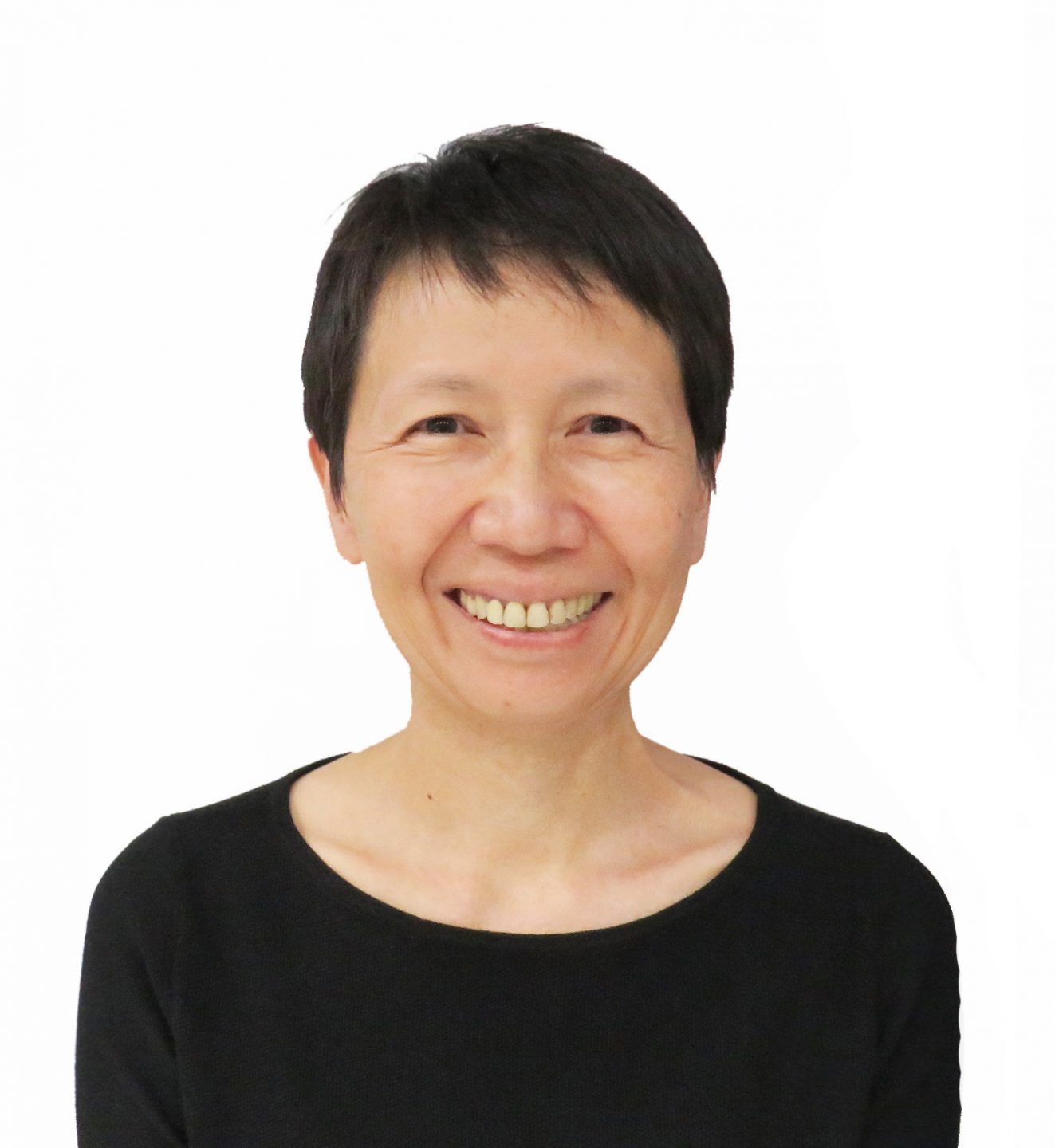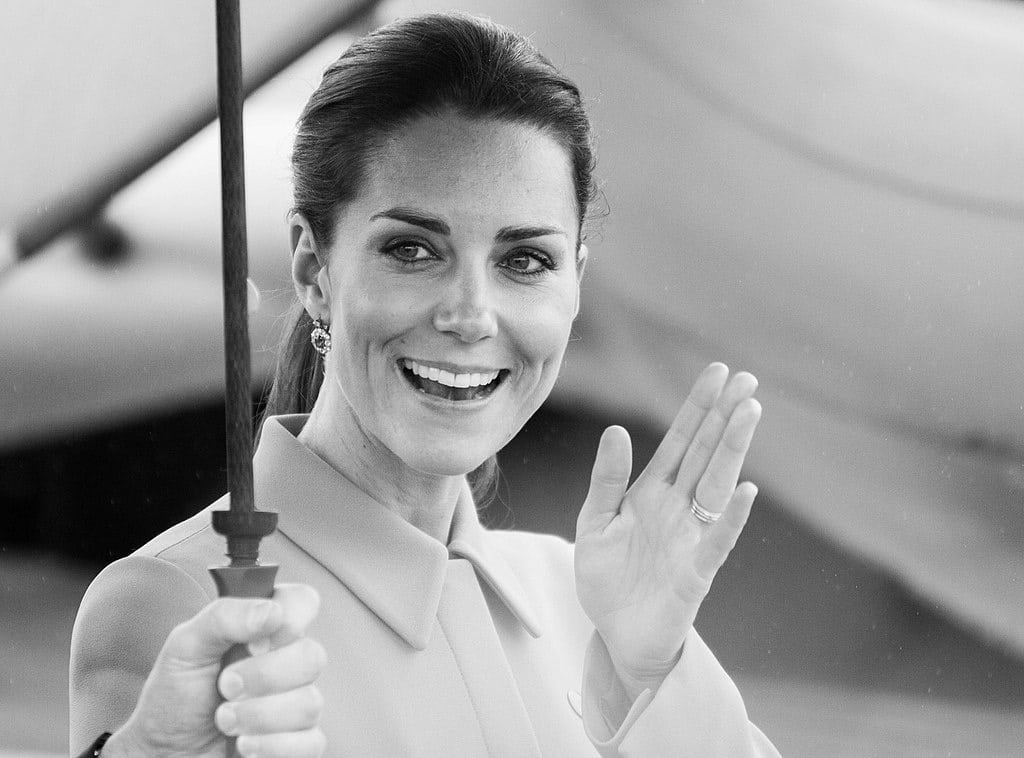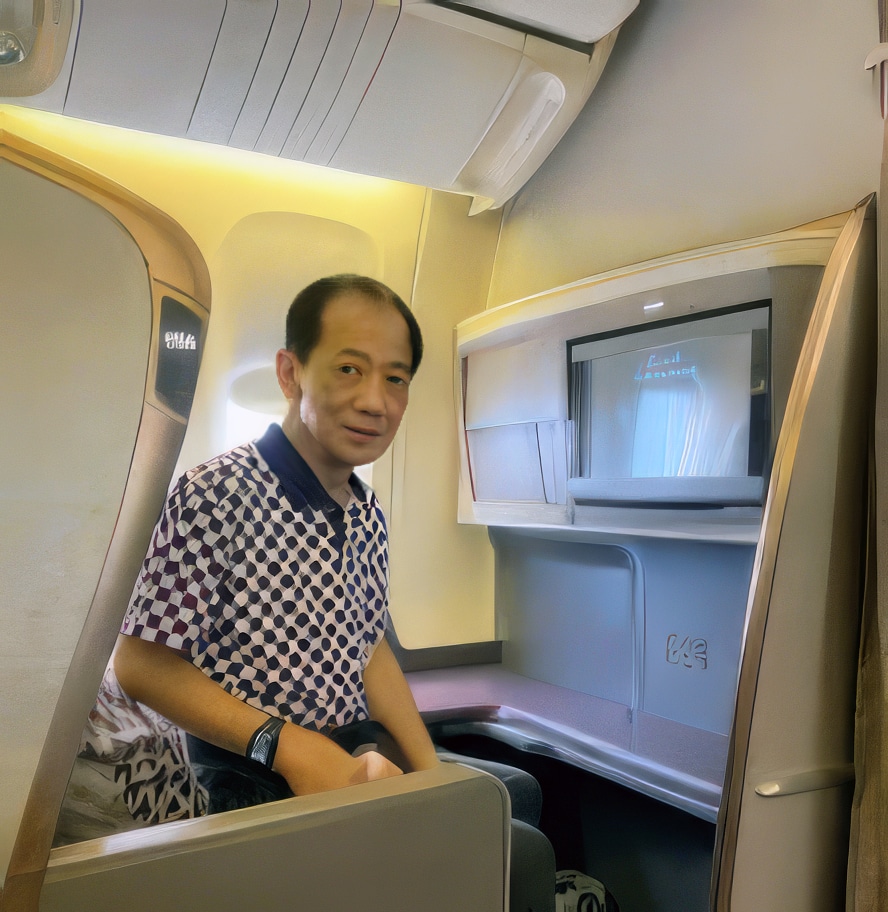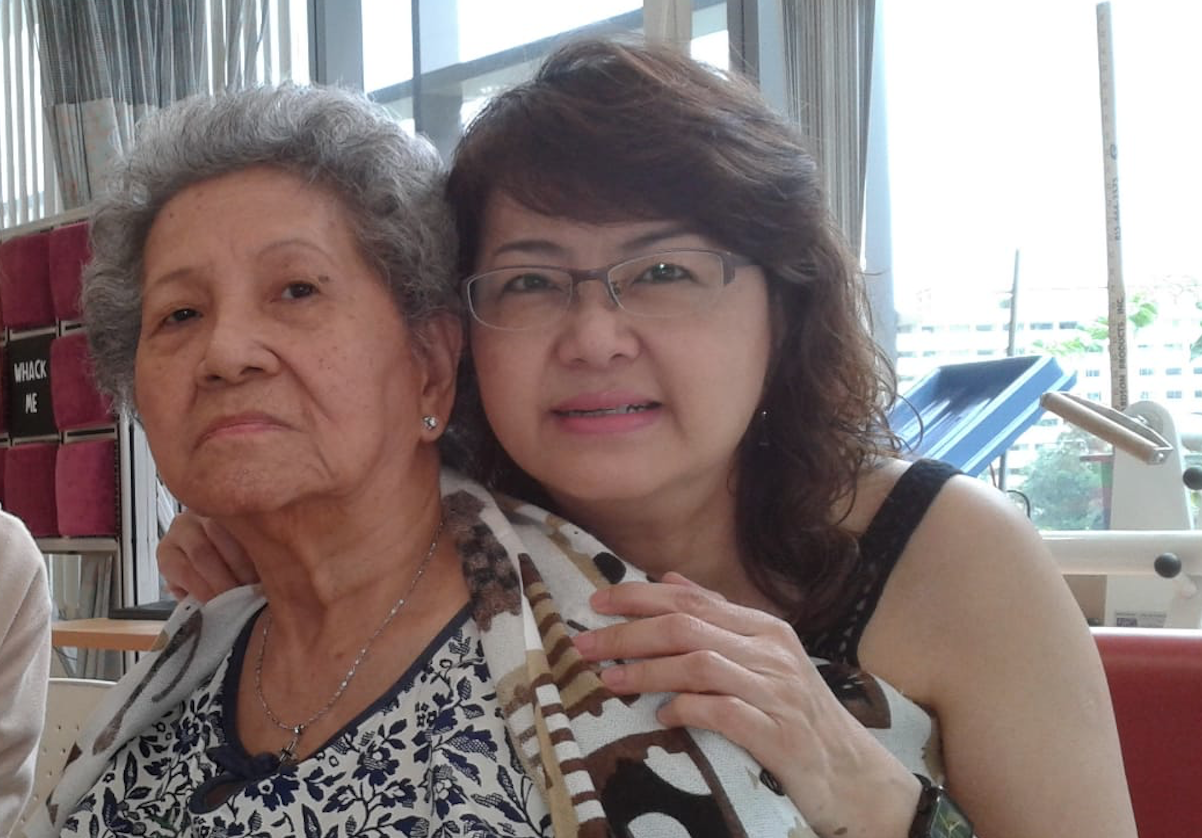
Love's labour is never lost: "I will feel so alone without Mum, even in her state," admits Pamela Lee of her mother, Gladys Low. All photos courtesy of Pamela Lee.
A fiery furnace heated seven times hotter, wherein you will meet Jesus: Would you enter?
The challenge sounded out over the pulpit, and Pamela Lee pondered hard on the conundrum, as well as the mention that the pastor hadn’t planned to preach on Daniel’s three friends that particular Sunday.
The year was 2008. More than a decade on, the memory of how the message resonated with her remains vivid.
She relates the biblical account: In King Nebuchadnezzar’s furnace with Shadrach, Meshach and Abednego was a fourth man whose appearance was “like a son of the gods” (Daniel 3:25).
The trio eventually emerged without a single hair of their heads singed. “Their cloaks were not harmed, and no smell of fire had come upon them.” (Daniel 3:27)
Pamela was on the cusp of turning 60, her mother was in the early stages of vascular dementia, and her intellectually disadvantaged brother was increasingly difficult to manage.
Meanwhile, she was among the people who had just been tasked to produce a fundraising music CD for her church, Ang Mo Kio Methodist Church (AMKMC), which was preparing for redevelopment.
An Electone organ and piano teacher with Yamaha Music School, she was filled with a sense of woeful inadequacy: “I’m just a music teacher. In my heart, I kept repeating, ‘I can’t.’ ”
“Why do you say you can’t when I have said in My Word, ‘You can do all things through Christ who strengthens you?’ ”
But the winds of change were fanning in the furnace’s favour.
The very day she was readying herself to bow out of the project, Pamela’s phone beeped with a Whatsapp alert. It was a devotional message that said: “Why do you say you can’t when I have said in My Word, ‘You can do all things through Christ who strengthens you?’ ” (Philippians 4:13)
Her take on the episode: “The Lord waited; He timed it to be exactly when I sat down. I read the message and, wow, my heart just popped, you know?”
That marked the beginning of a long road that now stretches even further, for on the first day in the recording studio for the CD, she was given grim news that her father was terminally ill.
Talk about seven times hotter: “I didn’t realise it then, but in the midst of everything, my father had cancer.”
Bringing up Dad
Lee Kang Han was a diligent stenographer in his younger days who earned a monthly income of $400. A devoted family man, he took on a second job giving shorthand tuition in the evenings to pay his son’s medical bills when the boy was left with brain damage after a raging fever at two months of age.
That was in 1955. Epileptic seizures dogged Ronald Lee as he grew older, and through his teenage years he was in and out of hospital. His doctor subsequently assessed that he would always have the mental capacity of a six-year-old.
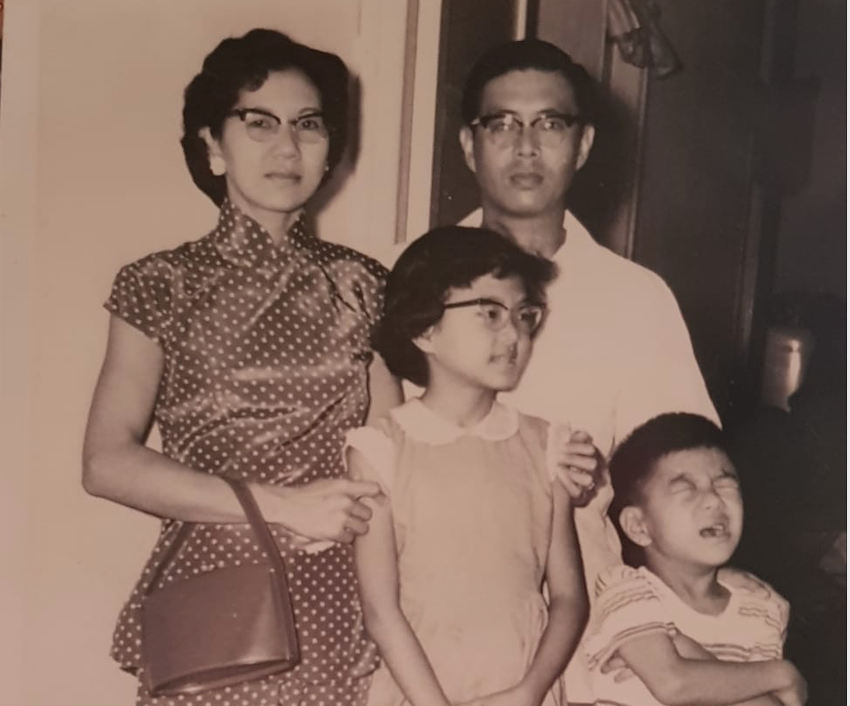
The early years: In the Lee family, Mum was the household chief and handyman, while Dad took care of all the finances and paperwork.
Pamela’s perception is that Mr Lee became angry with God and distanced himself from grace. Whenever the family went to prayer meeting, “he will drive us all, but he will sit right at the back with folded arms”.
In the 1990s, he experienced the miracle of one of his arms growing to the same length as the other, when it had been shorter since birth, and his faith was renewed. But it flagged again when Pamela was diagnosed with breast cancer.
It was her housewife mum who turned to the Lord and prayed fervently for help. “My father didn’t say anything,” Pamela recalls. “He doesn’t normally say anything.”
“The word was: ‘Dr Jesus will heal’ – which means it was (cancer), and the Lord healed me.”
It turns out, though, that he ruminated to himself privately: “She’s serving. We are having cell meetings in our home. We are praying and all … Why is this happening?”
His nocturnal rant was only discovered three nights afterward, at a Friday fellowship, by a speaker who moved in the spirit of knowledge and prophecy.
“Even before the sermon, he was picking people out from the congregation to stand up. He picked out my father! And the word to my dad was: ‘Three nights ago … ’ Dad was shocked.
“The speaker said: ‘You worry about your children. Dr Jesus will heal.’ Like that!” recounts Pamela.
Her breast tumour was some 3cm in width, and her surgeon had booked the operating theatre for seven hours to accommodate a mastectomy and reconstruction surgery. “He was so sure it was cancer because my grandmother on my father’s side had breast cancer and I have relatives with cancer.”
Furthermore, the statement on her mammogram report was mystifying: “No signs of benignity.”
“That means signs of malignancy!” Pamela exclaims. Newly confident in God, however, her dad told the surgeon: “It’s not cancer.”
“The thing is,” she says in retrospect, “the word was: ‘Dr Jesus will heal’ – which means it was (cancer), and the Lord healed me.”
The surgeon was sceptical, and would not commit himself. “He said, ‘We go for day surgery and then we’ll come back.’ He didn’t say if. He said then.”
A frozen section procedure was performed, the tumour was removed. “My parents told me that the doctor came and said to them, ‘It’s amazing. It’s benign.’ ”
Faith’s fire
When Mr Lee was diagnosed with end-stage lung cancer around August 2009, it was a different matter altogether. He displayed no symptoms and was an active sportsman, hence unexplainable weakness and a poor appetite landed him in hospital for a thorough medical checkup.
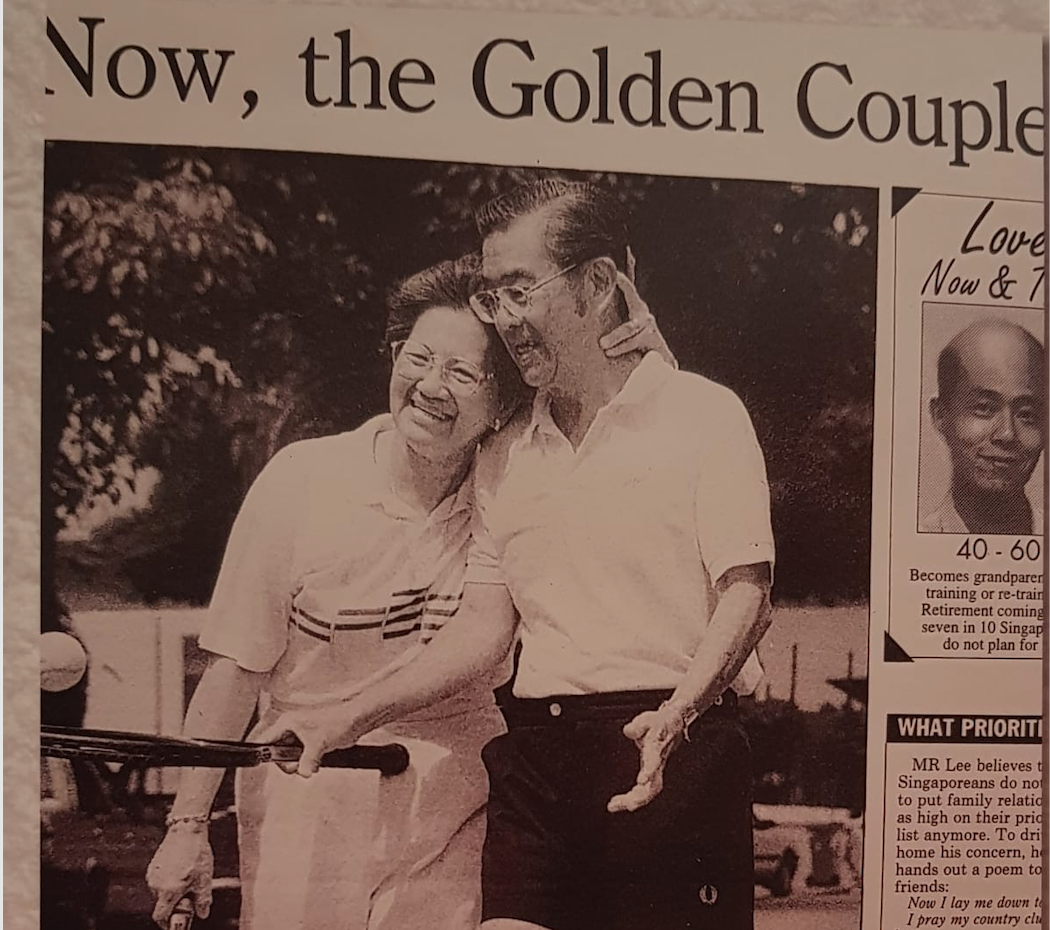
Match point: The Lees, leading lights on the senior citizens’ tennis circuit, were featured in The New Paper in 1993.
The two months from diagnosis to his death in October felt as overheated as Nebuchadnezzar’s furnace, yet unseen footprints (Psalm 77:19) seemed to be going before the family every step of the way.
Pamela chose to have him cared for at home, and as he weakened, a visiting doctor from Hospice Care (HCA) told her: “ ‘I think it’s up, he’s ready to go.’ ”
The then-pastor-in-charge of AMKMC, Rev Stanley Chua, happened to come by, at the same time as a doctor friend. “The fact that Stanley came was because somebody had dropped a love gift – to this day I do not know who – into the offering bag to give to our family. So he brought the love gift to us.
“When I left him, he was okay. The Lord just didn’t want me to see him go; I know that.”
“Stanley called the whole family to pray a prayer of release, and asked my dad to release to the Lord.
“But nothing happened. They all went home.
“That night, a friend of mine called and I told her, ‘Doctor said he’s due, but how do you know?’ She said, ‘The fingers turn blue and then you know lah – already gone.’
“I put down the phone and went to check on my dad. His fingers were blue already.
“When I left him, he was okay. The Lord just didn’t want me to see him go; I know that.
“I don’t know whether he struggled? I felt really bad, that I was on the phone talking. But I think it was a distraction. I played it over and over in my mind. I pray that it was peaceful death because he was sleeping actually when I left him.
“The timing was amazing.”
This is not my home
All through Mr Lee’s battle with cancer, his wife, Gladys Low, was gradually succumbing to Alzheimer’s – one of the estimated 70% of dementia patients aged 60 and above who are afflicted with the memory-destroying disease.
In her decreased mental capacity, she could not grasp that he was gone, and accused Pamela of trying to separate them by saying he was dead.
“Mum didn’t know the funeral was for him. She said it was somebody else’s. She attended the wake, we made videos, she went for the sea burial and all. She couldn’t accept the fact that he was not there.”
Gladys was a young 19 when she became Kang Han’s wife in an arranged marriage in 1949. “I didn’t know that much about love,” she said in a 1993 interview with The New Paper.
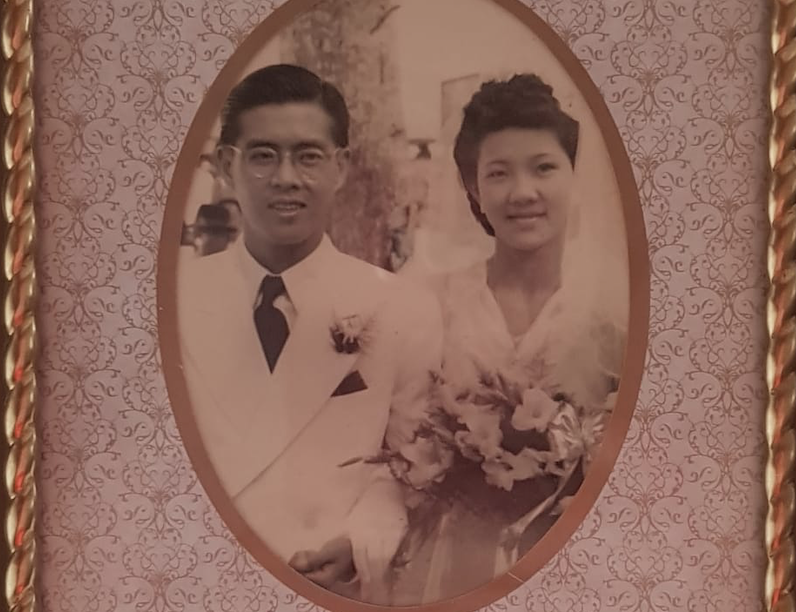
Wedding bells a-ringing: Lee Kang Han was 28 when he married 19-year-old Gladys Low in 1949.
“I thought that Kang Han, who was 28 years old then, was so clever and good-looking. In our old age, we give each other companionship, and physical and emotional support.”
When symptoms of mild Alzheimer’s began to show, Mr Lee struggled to accept the inevitable. When he died, it was Gladys who could not be reasoned with.
Pamela shares: “She would say, ‘Where’s Daddy? Go and call him. Where did he go?’ I had to think of a story, ‘He’s gone to work, Mum. He’s doing overtime.’
“When we are going to church she would say, ‘Why Daddy not going to church with us? Where’s Daddy?’ And she would call, ‘Dad! Dad!’ ”
There was a season during which she even suspected him of having an extramarital affair. In her frustration, Pamela found herself banging her fists on her bedroom walls, behind closed doors. Tears streamed down her face as she cried out in despair to the Lord, and all of a sudden, she felt His Presence upon her.
“‘You think you are patient? You are not patient enough,’ the Lord said,” she recalls.
“Your love, Lord,” she responded in brokenness. “Give me Your love for my mother.”
No easy road
She testifies that since then, her mother can do no wrong in her eyes. A supernatural-something happened in her spirit, and she was given a deep compassion for Mum.
“It’s no point getting upset, because they cannot help themselves at all.
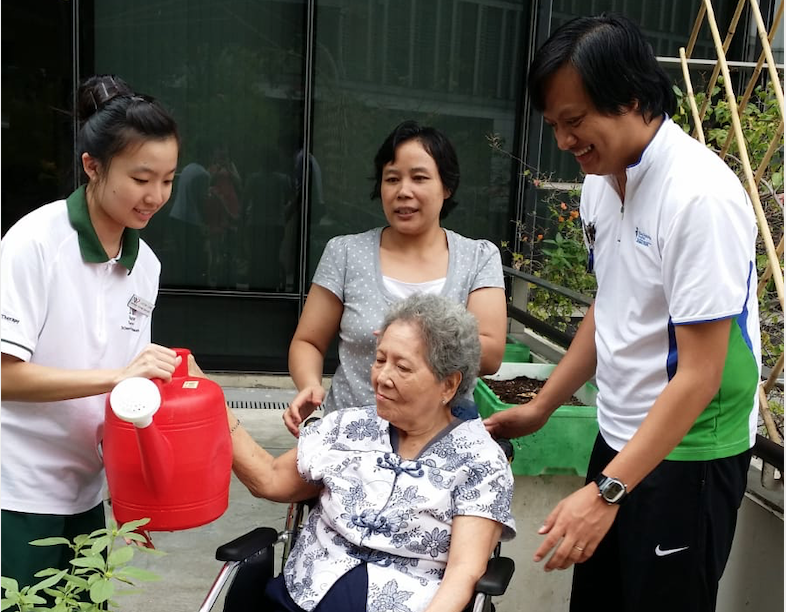
Sprinklings of blessing: Gardening therapy is one of the activities that Gladys Low enjoys at Khoo Teck Puat Hospital.
“And this is the other lesson that I learned: I do not ask the Lord, ‘Why is this happening?’ Initially I did: ‘She’s the one that loves You so much. She worships You. Why her, of all persons?’
“Then I came to realise that Mum now can’t understand anything, my brother can’t understand anything – so who do you think the Lord is dealing with?
“I came to realise that Mum now can’t understand anything, my brother can’t understand anything – so who do you think the Lord is dealing with? Me.”
“Me. Exactly. My favourite verse is, ‘All things work together for the good of those who love Him’ (Romans 8:28). And now I understand why – because He is sovereign, He knows what’s going on.”
Some days are better than others, and many are intensely nerve-wracking. It’s become a given that most of the time Gladys can no longer recognise Pamela. “I have to reintroduce myself. I say, ‘Mum, I’m your daughter, you know – Pamela, okay? Can you remember? See, I’ve grown old already.’
“Sometimes she can. Or, she’s too proud to say that she can’t remember. ‘Yes,’ she will answer.”
In the past when Gladys was more engaged, she would often be adamant that their Bishan flat was not her home, and insist on going back to the flat that sounded like their early residence in Fowlie Road.
One night when she could not be pacified, Pamela drove her there and pointed out the landmarks. “ ‘Okay, Mum, here we go. You see Marshall Road? Fowlie Road – you remember the drain? See, the school is still there.
“ ‘The flat we were in has been demolished already; there are terrace houses now.’
“She calmly turned to me and said, ‘Did you bring the key?’
“My helper and I, we just had to laugh it off. Mum came to a realisation and she was embarrassed. Then we just quietly drove home. That was it, an outing.
“You cannot be angry about it. You accept it and you play along. It’s like telling white lies, but their feelings are real.”
The work of worship
Pamela tries to make sure they still go to church together as a family, even though manoeuvring the wheelchair is inconvenient, and Gladys mostly sleeps through the service.
Pamela reasons: “I know when we’re worshipping God, His Spirit is there.”
One Sunday, after the last hymn was sung, Gladys continued monosyllabically in the same rousing spirit, “Ra-ra-ra-rrrr-ar”, for one-and-a-half or two bars.
“She was singing loudly, even though during the time when we were singing she wasn’t. Actually, she was aware of the worship!”
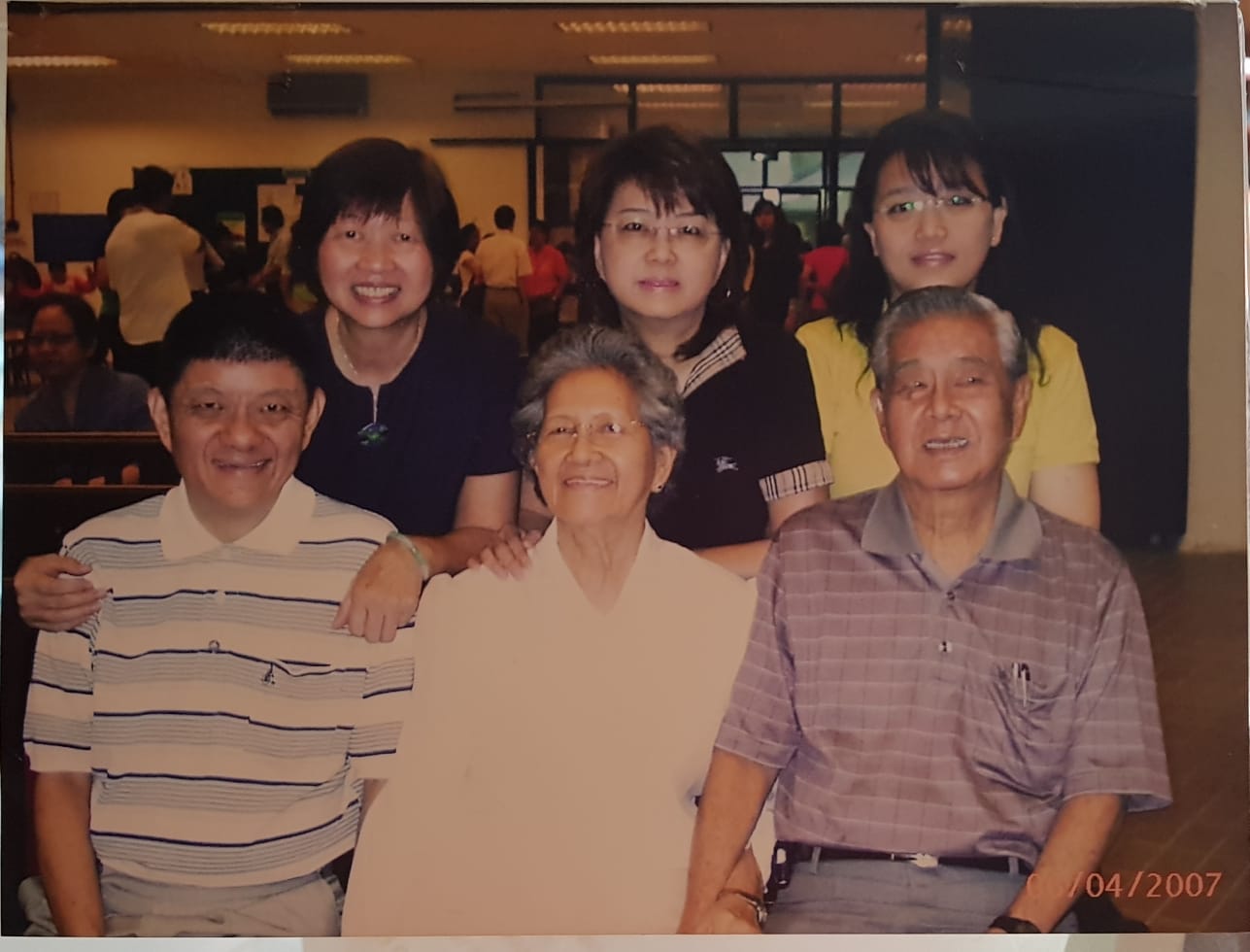
Sunday joy: The Lee family in church with friends, when Dad was still alive.
“That night, the whole night, she was saying, ‘Hallelujah! Hallelujah!’ So in the spirit, she is worshipping.
“Where God is concerned, my mother is very anchored – even now in her dementia state. That is the most encouraging part. I thank God for that.”
“Where God is concerned, my mother is very anchored – even now in her dementia state.”
Nonetheless, the daily reality is ever-present, and making ends meet is still a faith journey, even though Pamela has been the family’s sole breadwinner for more than two decades.
“I know I shouldn’t be complaining. I tell the Lord, ‘I know You are here to help me but I’m the one that has to do the business, right?’
“Physically I am very tired; I have to make all the decisions. But God gives me the strength. God gives me the love.
“Even now I’m struggling,” she shares honestly. “There are challenges all the time, but if you count your blessings, it is a joy to see the Lord’s hand in every little thing – if you see that out of this (circumstance), so-and-so came to help.
“Just yesterday, this church mate came to bring buns for us. Last year, my cell leader saw the cracks in the walls outside, and husband and wife brought paint and personally painted my mother’s room and the living room.
“When I see the miracles that happen, it is a joy, it is a marvel. We have a great God.”
Difficult reflections
“I don’t have the time to think about me. Like when my dad passed away, I didn’t cry. I was too busy and worried about my mother. And I worry about my brother.
“I was surprised at myself. It wasn’t that I didn’t love my father; I love him so much. In fact, when they said he was ready to go, all I could say was, ‘Dad, I love you.’
“The only time I cried was when there was nobody. I just cried on my brother’s shoulder, and of course he didn’t know what’s happening.
“After that, later, by myself, I just wept because I miss my dad so much – until today, it’s 10 years already, but his photograph is in my room. I don’t want to forget what he looks like. I don’t want to forget what he was like.
“I love the memories, the sweet memories. I remember all the wonderful sweet memories.”
She is well aware that the day is drawing near when Gladys too will return to the Lord, and tries not to dwell on the eventuality.
“I will feel so alone without Mum, even in her state. I just need her there.
“I’ve heard her say she wants to die, she wants to go. It’s so painful when I hear that. But I must believe that the Lord has His purpose.
“So I pray, ‘Lord prepare me and help me to be able to accept. Don’t let my mother suffer more than she can bear.’ ”
We are an independent, non-profit organisation that relies on the generosity of our readers, such as yourself, to continue serving the kingdom. Every dollar donated goes directly back into our editorial coverage.
Would you consider partnering with us in our kingdom work by supporting us financially, either as a one-off donation, or a recurring pledge?
Support Salt&Light